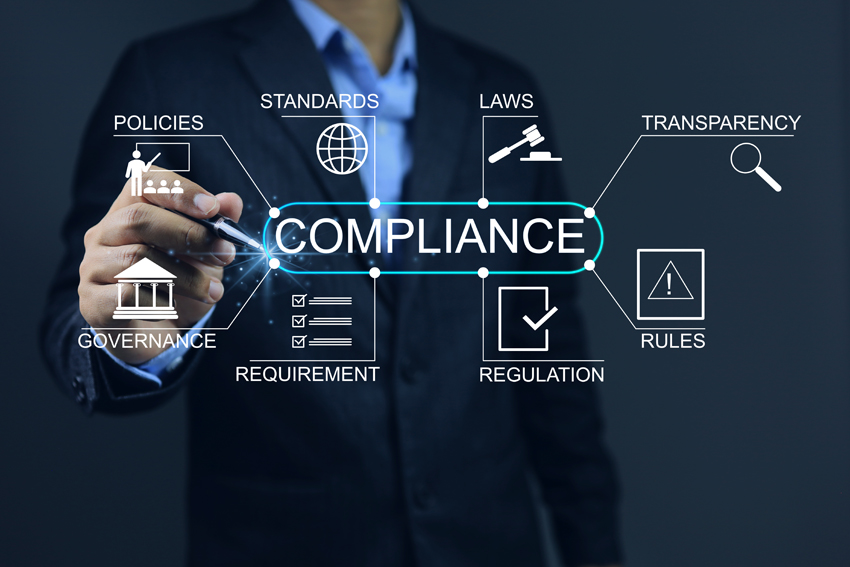Legal Ethics: Navigating the ethical challenges of advertising and solicitation in the digital age
Legal Ethics: Navigating the ethical challenges of advertising and solicitation in the digital age
By Sari W. Montgomery
In the rapidly evolving digital landscape, attorneys and law firms are increasingly turning to third-party marketing professionals, online platforms, and social media for advertising and soliciting new clients. This shift brings both opportunities and challenges, particularly in adhering to ethics rules.
The ABA Model Rules provide guidance for lawyers utilizing digital marketing tools either directly, or through a third-party, to promote their practice and attract new clients. Specifically, ABA Model Rules 7.1 and 7.2 permit lawyers to advertise their services to the general public, so long as the communications are not false, misleading, or omit facts necessary to make the communications as a whole not materially misleading. Although lawyers may pay the reasonable costs of advertising or marketing,
Model Rule 7.2 generally prohibits lawyers from paying or giving anything of value to a person for recommending the lawyer’s services, with the exception of “nominal gifts as an expression of appreciation that are neither intended nor reasonably expected to be a form of compensation for recommending a lawyer’s services.” Model Rule 7.2(b)(5). (Not all states have adopted this exception. Lawyers should be sure to check the specific Rules of Professional Conduct in their jurisdictions.)
This prohibition is consistent with the more general prohibition on sharing fees with nonlawyers enumerated in Model Rule 5.4. Lawyers can, however, pay for lead generation, digital or otherwise, so long as the lead generator does not recommend the lawyer, and payment is not based on the results obtained in a particular matter or matters generated. Model Rule 7.2, Comment [5].
A closer look at Model Rule 7.3
While lawyers are prohibited from paying others to recommend their services, Model Rule 7.3 permits lawyers to solicit specific clients known to be in need of the particular legal services the lawyers offer to provide, so long as the solicitation is not by live person-to-person contact, when the lawyer’s motive is his or her own financial gain.
“Live person-to-person contact includes in-person, face-to-face, live telephone, and other real-time visual or auditory person-to-person communications where the person is subject to a direct personal encounter without time for reflection.” Model Rule 7.3, Comment [2]. Live person-to-person contact does not include chat rooms, text messages, email, or other written communication that recipients may easily disregard (Id).
The rationale for the prohibition on live person-to-person contact is based on the concern that the lawyer’s position of power and ability to persuade may create a coercive environment where the person being solicited does not feel free to decline the lawyer’s overtures.
As more and more lawyers turn to outside marketing consultants and vendors, they should also remain cognizant of Model Rule 5.3’s requirement that lawyers are responsible for ensuring that the conduct of any nonlawyer “assistance” they employ or with whom they contract, is consistent with the lawyer’s ethical obligations.
The title of the Rule references “assistance” rather than “assistants” to convey that the Rule applies not only to persons who assist the lawyer, but to any assistance, including outside vendors and technological assistance. Too often, outside marketing consultants and vendors who do not focus on the legal industry are unaware of the ethical constraints lawyers face in developing a marketing or advertising strategy.
For example, outside of the legal field, a TikTok video or other social media post with someone proclaiming that the make “the best” hamburger, or “guaranteeing” customer satisfaction, without having any data or objective measure to back up those statements, is perfectly acceptable. In the legal industry, however, it would not be permissible to guarantee results or claim to be “the best” personal injury attorney unless those statements were objectively truthful and not misleading. Lawyers are thus responsible for ensuring that all advertising and marketing efforts comply with the Rules of Professional Conduct, and must have processes in place to review and approve all content, on social media or otherwise, before it is published, posted, or streamed.
Potential chatbot pitfalls
You may have also noticed the explosion of chatbots on lawyer and law firm websites. Chatbots (whether powered by artificial intelligence or not) can be invaluable tools which can assist lawyers in streamlining the intake process and in converting a casual visitor to the firm’s website into a client. From a marketing perspective, chatbots can be very engaging and make the user feel like they are connecting with the law firm or lawyer. From a risk management perspective, lawyers should be careful to avoid inadvertently creating an attorney-client relationship through the use of a chatbot, and to include disclaimer language regarding the chatbots’ inability to give legal advice.
Whether a lawyer has created an attorney-client relationship is viewed through the lens of the client and not the lawyer, so making it clear that there is no attorney-client relationship until an agreement is signed or further steps taken, is essential to avoiding acquiring “accidental clients” to whom the lawyer may then owe duties including, but not limited to, confidentiality, competency, and avoidance of conflicts of interest.
Lawyers should also be sure that any chatbot or other technology platform they use that interacts with clients is not engaged in the unauthorized practice of law—in other words, that it is not giving clients legal advice. Model Rule 5.5 prohibits lawyers from engaging in or assisting the unauthorized practice of law, so it is incumbent upon the lawyer to understand how the chatbot or other platform works and what information it will provide to clients. A lawyer’s duty of competency also requires the lawyer to understand the risks and benefits associated with relevant technology. Model Rule 1.1, Comment [8].
The digital age offers new opportunities for lawyers to reach potential clients, but also brings significant ethical and professional challenges. By exercising due diligence when vetting potential products, providers and content, properly supervising nonlawyer assistance, and adapting to the constantly changing technological landscape, lawyers can successfully and effectively leverage digital marketing tools to ethically drive growth.
[This article is based in part on a larger paper on the topic co-authored by Renee Jiang (Henein Hutchison Robitaille LLP), Emily Litzinger (Fisher & Phillips LLP), Sari W. Montgomery (Robinson, Stewart, Montgomery & Doppke LLC), Mark D. Risk (Mark Risk, PC), and Prof. Elizabeth Tippett (University of Oregon Law School), that was presented at the 18th Annual ABA Section of Labor and Employment Law Conference in November 2024.]

Sari W. Montgomery
Sari W. Montgomery is a partner at Robinson, Stewart, Montgomery & Doppke in Chicago, Ill. Her practice involves representing attorneys in legal ethics and professional responsibility proceedings. She can be reached at [email protected].
Share this story, choose a platform
Brought to you by BridgeTower Media
Free Weekly Newsletter
Recommended content
Reputational Management: Why values-driven communication protects law firm reputation
Reputational Management: Why values-driven communication protects law firm reputation By Gina F. Rubel and Elizabeth Ogilvie In volatile times, values are not abstract [...]
How to challenge effectively (even when you have less power)
Learning to tactfully challenge a colleague’s decisions or reasoning is a skill. Here are some ways to start the dialogue. [...]
6 succession planning mistakes lawyers make
When small-firm owners fail to smoothly retire from their practices, it’s usually due to failings many years in the making. [...]
The practical realities of running a bilingual law firm
Speaking the same language as clients does not necessarily mean they are understanding you enough to participate fully in their [...]






